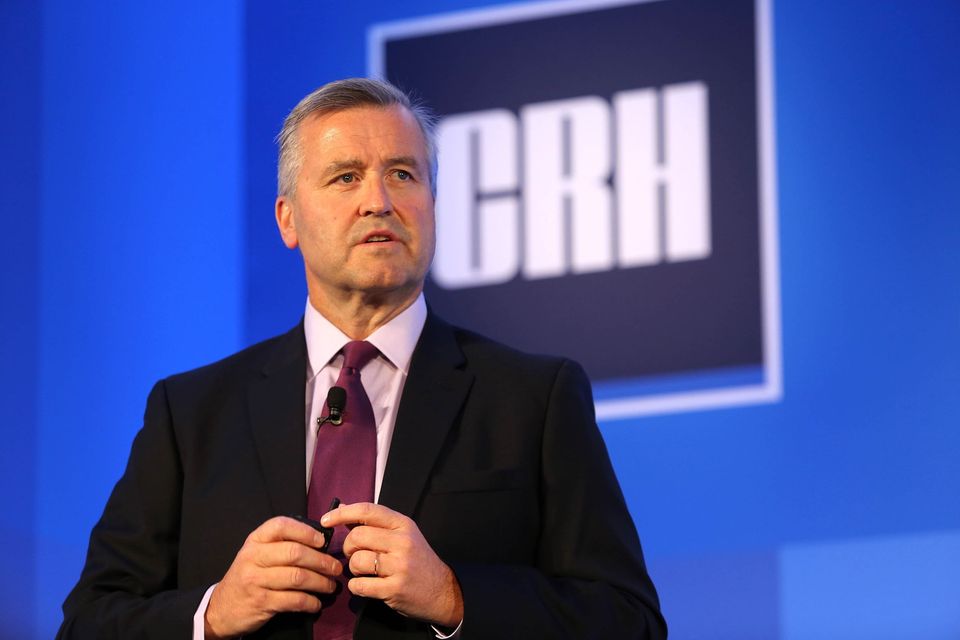CRH ‘de facto’ an American company as it leaves Dublin for New York stock exchange, says CEO Albert Manifold
CRH chief executive Albert Manifold. Photo: Gary O'Neill
Irish building materials giant CRH is “de facto” an American company, its chief executive said as the firm prepares to leave the Dublin stock exchange for a New York listing.
Albert Manifold said the move would bring in more US investors and help the group capitalise on US President Joe Biden’s multi-trillion dollar infrastructure subsidies.
“It makes CRH more of an American company, which de facto we actually are,” he told shareholders at the group’s annual general meeting in Dublin on Thursday. “We make 75pc of our profit there today, and that’s set to increase.”
Mr Manifold said it will retain its head office and tax residency in Ireland, with the firm employing around 350 staff here in finance, tax, management and procurement.
“To try and replicate that elsewhere, it would take us a decade to do that,” he said. “It’s a good place to do business and why should we be any different? Not on my watch.”
The stock market move, which CRH finance chief Jim Mintern said has the overwhelming support of the group’s shareholders, is set to be rubber-stamped at an extraordinary meeting on June 8.
Keeping a secondary Dublin listing was not an option, Mr Mintern said, with CRH opting for London instead.
CRH, which was formed in 1970 through the merger of well-established construction firms Cement and Roadstone, will continue to maintain a focus on Europe, Mr Manifold said.
He sees an impending construction boom on both sides of the Atlantic from the building of data centres and the re-shoring of technology, including computer chip manufacturing.
But he said CRH’s prices are set to rise again as the group attempts to recoup previous hikes in energy prices. Last year energy prices were up 47pc and have risen 17pc so far this year.
Mr Manifold denied price increases were driving its record high earnings and margins last year.
“We actually provide additional services and products to our customers that they pay us more [for]. We’re getting more of the pie, more of the gig, and at higher margins. That’s what’s driving our business performance. Nothing to do with pricing.”
